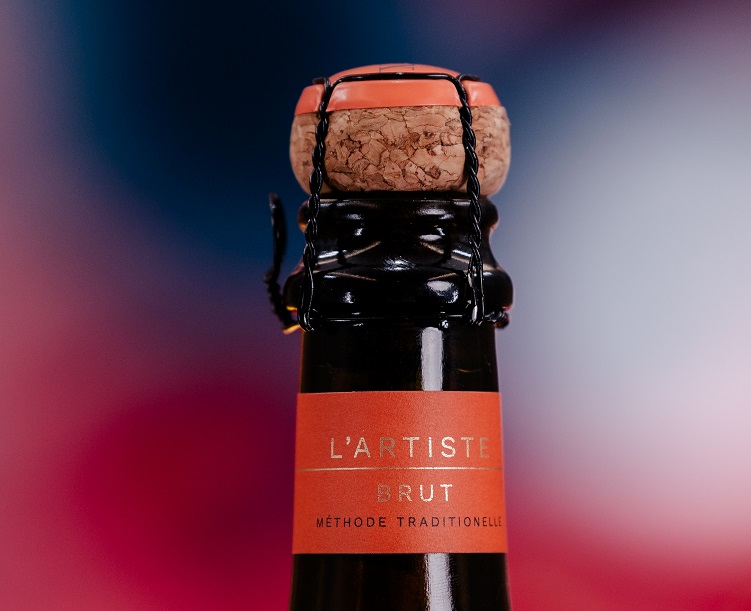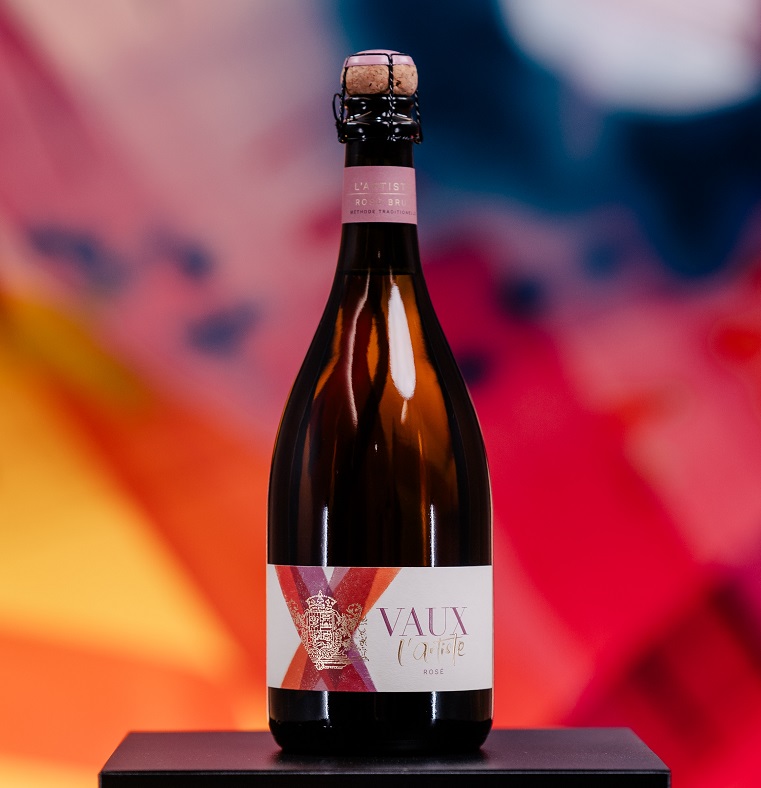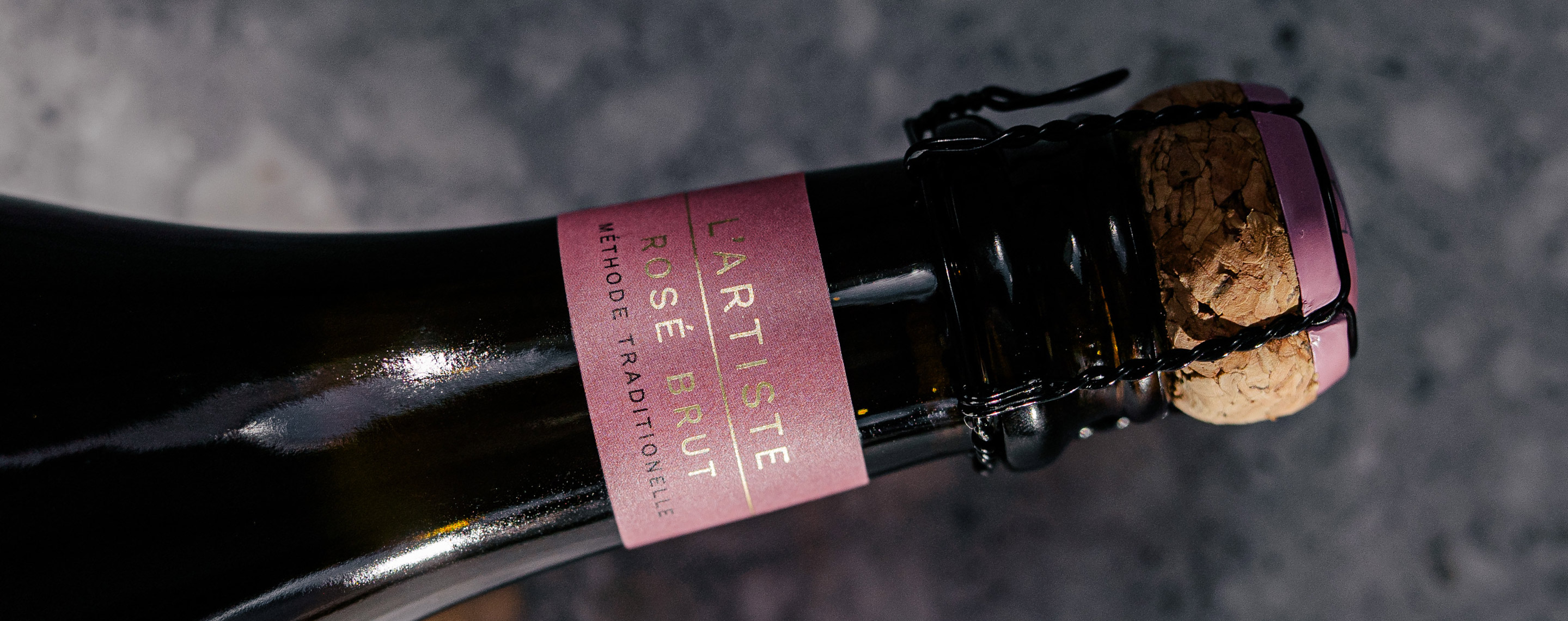The reasons for ditching capsules
- Environmental impact: Capsules contribute to packaging waste.
- Cost: They add to production expenses.
- Inconvenience: Opening foil capsules can be difficult and annoying (who hasn't cut themselves at some point?).
- Recycling issues: Capsules can contaminate glass recycling if not removed.
The case for capsules
- Enhanced aesthetics: Capsules can make bottles look more elegant and premium.
- Brand recognition: Distinctive capsules can help wines stand out on shelves.
- Perceived quality: Some consumers associate foil capsules with higher-quality wines.
- Protection: While less relevant today, capsules still offer some protection to the cork.
No capsule but the painted drip ring gives it a premium look

Napa Valley’s Cuvaison winery is rolling out a new lighter weight bottle which eliminates the use of foil capsules. Instead, it features an elegant painted drip ring (bead). The new bottle - 27% lighter than the old one – has been introduced on the 2022 vintage of Cuvaison’s Small Lot and Micro Lot wines.
The weight of the new bottle has been reduced from 880g to 645g but the key thing for the producers is that it does not look like a lighter weight bottle.
“There are hundreds of lightweight options, but not with the look and feel of luxury wine packaging,” explains president and CEO Daniel Zepponi, who spearheaded the design and rollout of the new packaging “because it has been estimated that anywhere from 40 to 68% of the wine industry’s carbon footprint comes from glass packaging and transport. The new bottle – combined with streamlined and consolidated manufacturing and shipping – will dramatically reduce our carbon emissions.”
While this is obviously important, Daniel is particularly proud of the luxury look of the packaging. He says: “While our goal was to decrease the overall weight by at least 25%, the real challenge was preserving the luxury aesthetic of the bottle. To create a significantly more sustainable bottle that doesn’t sacrifice the luxury look and feel we prize, we focused on thinner glass and the design of the punt and bilge, while adding the gold-painted drip ring. We are thrilled with the results.”
He continues: “As an industry, I think we have struggled to introduce lightweight bottles that are still beautiful and convey a sense of luxury. As a small company that likes to think big, I believe we have met that challenge.”

The custom-made bottle – made with 60% recycled glass – is produced in collaboration with Santa Rosa-based MA Silva USA, a manufacturer of premium corks, glass, and packaging.
Based on data from the manufacturer, by transitioning to the custom “right-weight” bottles, Cuvaison will eliminate the production of at least 36.3 metric tonnes of CO2 each year, which is the equivalent of burning 40,000 pounds of coal. Additionally, by streamlining production and US transport, including painting the drip rings where the bottles are produced, Cuvaison will eliminate an additional 2.5 metric tonnes of CO2.
MA Silva’s national sales manager, Ryan Riewerts, comments: “This partnership with Cuvaison exemplifies our dedication to supplying high-quality natural cork stoppers and premium, lightweight glass to wineries across North America, helping them achieve their sustainability goals. MA Silva was proud to assist in Cuvaison’s eco-journey, and together we will reduce the wine industry’s environmental impact.”
Daniel adds: “As a winery that embraces sustainability as one of our core values, this was a very important initiative for Cuvaison.”
Founded in 1969, Cuvaison is still an independent, family-owned winery, making estate-grown Sauvignon Blanc, Chardonnay and Pinot Noir from its historic Tai Estate Vineyard in the cool Los Carneros appellation of Napa Valley.
No capsule emphasises this producer’s environmentally conscious attitude

German sparkling wine producer Vaux has ditched capsules on its two new wines, l’Artiste Brut and Rosé.
These two new sparkling wines demonstrate where the Rheingau-based producer’s future path lies, according to CEO Christoph Graf: at the top of the quality league in the world’s best markets.
He says: “We have 150 years of experience in traditional bottle fermentation, combine French and German sparkling wine expertise and can rely on the cool fruit from the vineyards on the Rhine – even amid global warming. We also have a vision and the operational structure to position ourselves internationally.”
It is not just the French style of vinification and ageing of the two blends that are completely new at Vaux, their presentation is also clearly aimed at a new era.
By deliberately dispensing with a capsule, Vaux emphasises its environmentally conscious attitude. The strong colours, which meet like brushstrokes to form an ‘X’ on the label, point to the complexity and the self-confident, strong personality of the sparkling wine. At the same time, the X can also be interpreted as a crossroads in the company’s history.
“Vaux was founded in Berlin in 1868, then later moved to Metz in what is now northeastern France and has been based in Rheingau since 1921. We have lived through many decades of political turmoil and the redrawing of geographical borders. The power of transformation is one of our strengths. Now we are also ready to face the new climatic challenges with vision and entrepreneurial resilience,” says Christoph.

What the sparkling wines and their strong design also radiate is a positive attitude and confidence. “We observe the younger generations very closely. What we see are responsible people who treat the planet and each other very respectfully. We want to be there for these consumers with our wines and celebrate every beautiful moment of community and cohesion,” he adds.
Vaux commissioned the English agency Amphora Design, led by Neil Tully MW, to create the graphic design for the l’Artiste labels.
Declaration of interest: Amphora Design has also designed the labels for the author's range of wines from Georgia, Slovenia, Austria, Hungary, Albania and Ukraine. So far, the red and amber wines have soft wax capsules and the sparkling wine has a cage and paper strip. The Austrian wine, made from piwi grapes, will be bottled in Green Gen woven flax and Frugalpac cardboard bottles. The author is trying to make it the benchmark for sustainable wines.

 English
English French
French







.png)


